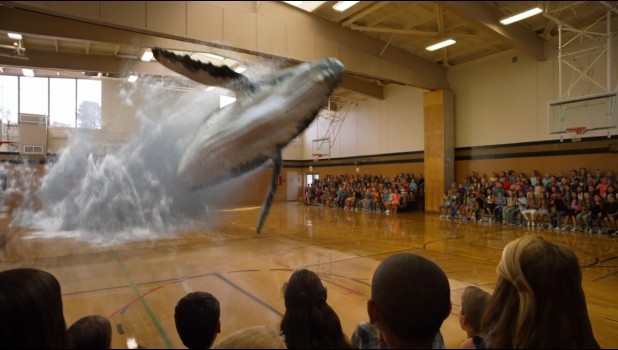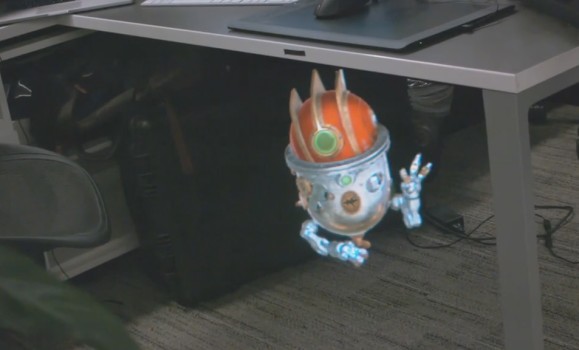
Florida-based virtual reality company Magic Leap has just raised another $800 million, the largest “C” investment round in Internet history, bringing its total valuation to $4.5 billion.
This is not the same company as Leap Motion, which tracks hand gestures, and does have products already on the market.
On Inworld Review this past Sunday, Mal Burns and I discussed the issue of product vs. platform, and the perils of investing in a single-product company.
For an illustration of the difference, consider old-fashioned flip phones and today’s smartphones.
When your old flip phone became obsolete, or you accidentally broke it, or you just got tired of it, you would go buy a new one — and you could pick from phones from any manufacturer. If your previous phone was a Motorola, there was nothing keeping you from buying a Nokia, or vice-versa.
By comparison, Apple and Google make smartphone platforms. When you buy an iPhone, or an Android phone, you become part of that particular ecosystem. You start accumulating apps and accessories that only work with that platform. Switching from an iPhone to an Android phone or the other way around is difficult since you lose all your apps and have to buy all new chargers, and migrating your other content is a huge pain. However, upgrading from one iPhone to the next model is easy, as is switching from one brand of Android phone to another.
If a company makes products, then growth is likely to be steady and linear. Every new product is a new battle for market share.
If a company makes a successful platform, however, then growth can be exponential.
Given the choice between making an early investment in a company with a cool product or a company with a cool platform, go for the platform every time because there’s so much more growth potential.
Is Magic Leap a product or a platform?
Based on what we’ve heard so far, Magic Leap is a mixed reality headset that’s a cross between Google Glass and Microsoft’s Hololens and that shoots light beams into your eyes.
That sounds like a product, and a particularly weird, niche product.
Do we really want to be running around our office shooting robots that are invisible to everyone else? Okay, maybe. Or it’s just me. But that’s not worth $4.5 billion.

CEO Rony Abovitz just released a blog post — his first in about a year — in which he says that it’s not just a product.
“Here at Magic Leap we are gearing up for our First,” he wrote. “Let’s not call it a product, although it is a product on many levels; but on some levels it needs to be more.”
That kind of makes it sound like a product, to me.
“We are setting up supply chain operations, manufacturing,” he continued.
That makes it sound like even more of a product.
“Engineers move about our spaces with a sense of urgency,” he wrote. “Intense debates about every form of science and art you can imagine float about. Plans have been made. Program and production managers track progress. Coders are coding. Operational and financial systems are being upgraded so that we can scale and deliver at the required volumes.”

That all sounds like a product.
But then he also says something else: “We are creating the future computing platform for everyone, one of context, presence, intelligence, and experience.”
He doesn’t go into any more detail about that. Instead he talks about joy and art and magic and other marketing buzz-speak that manufacturers like to associate with their physical products.
Given how many headsets are on the market today, it’s hard to believe that a single-product company — where the product hasn’t even been publicly demonstrated yet — can be worth $4.5 billion.
It makes more sense if they’re setting themselves up as a platform.
Today, I count five major virtual reality platforms — Google Cardboard, Oculus-Facebook-Samsung, Sony, HTC-Valve-Steam, and OSVR. Each has one or more headsets and accessories, software developers, and a distribution channel through which customers can get the software.
None have, as of yet, a usable operating system.

I expect Apple to come up with one, and then for everyone else to steal it.
Eventually, we’ll have a couple of major players in the general purpose virtual reality space, a couple of major players in the proprietary gaming space, and maybe a new startup that comes out of nowhere and suddenly dominates the market.
Could Magic Leap be that hitherto-unknown startup?
It could be, if it beats Apple to creating an operating system for virtual reality.
And if it is able to assemble an ecosystem of software and game developers and other content creators.
That second part is a long shot, given how far behind Magic Leap is. Google has just announced that there are more than 1,000 Cardboard-compatible apps in the Google Play store, and more than 5 million compatible headsets have been sold. And Oculus has the lead when it comes to game developers.
But the operating system race is currently wide open. The question is, can a startup come up with a brand new, groundbreaking hardware platform and a brand new, never-before-seen operating system, and also build an ecosystem from scratch? All the same time?
Personally, I’m waiting to see what Apple is working on before I place any big bets.
- Analysts predict drop in headset sales this year - March 25, 2025
- OSgrid enters immediate long-term maintenance - March 5, 2025
- OSgrid wiping its database on March 21: You have five weeks to save your stuff - February 15, 2025
